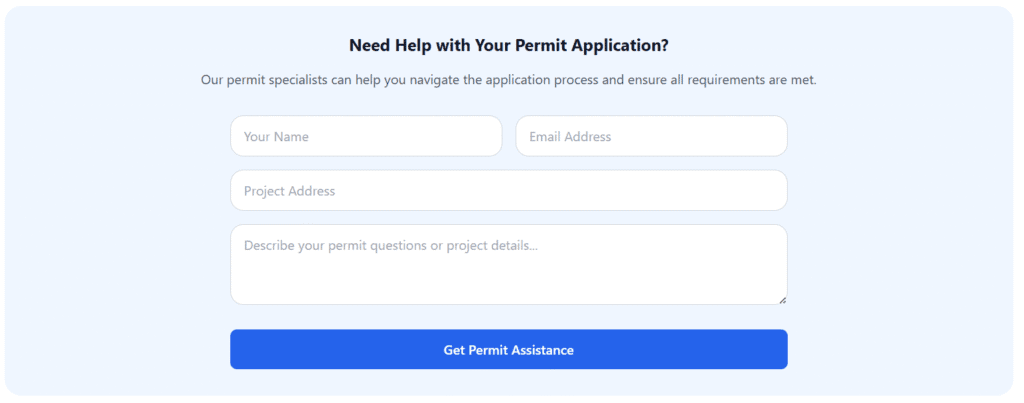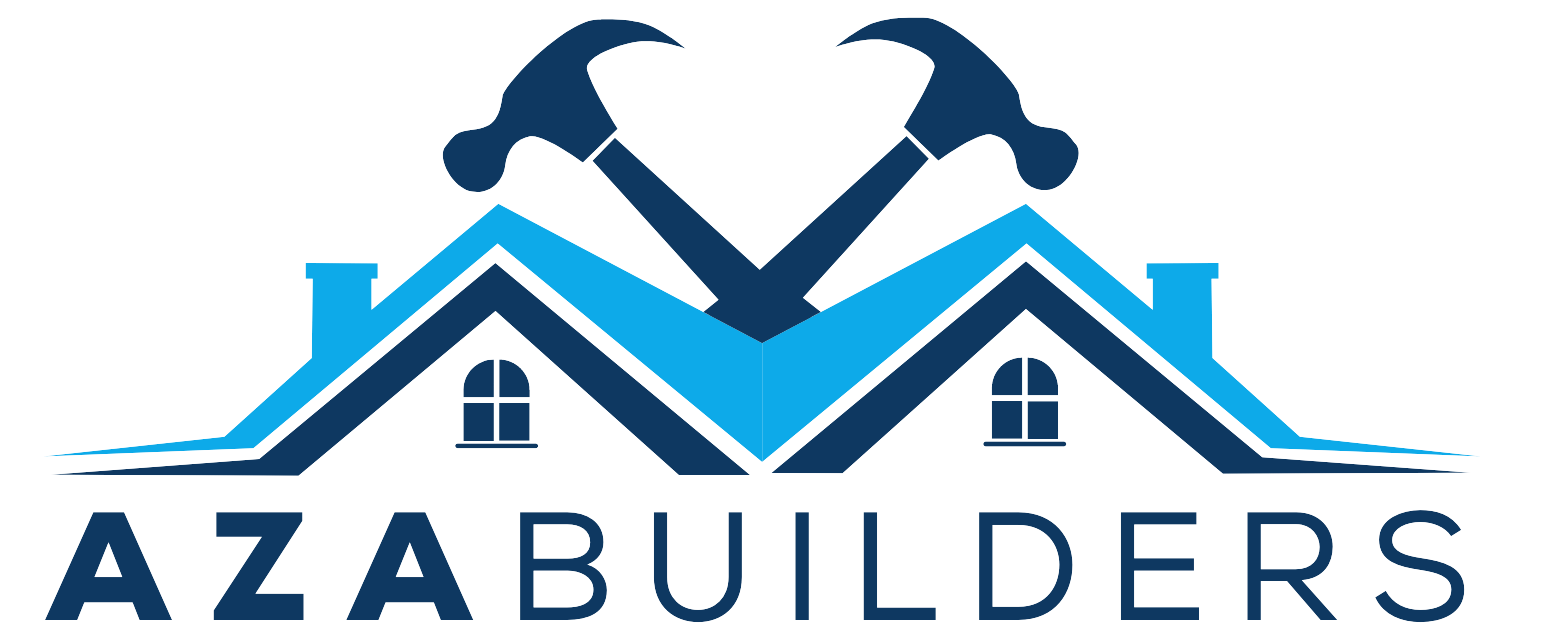Building Permit Guide
Navigate the permit process with confidence. Our comprehensive guide covers everything you need to know about building permits for home additions, from application to approval.
Types of Permits Required
Different types of home additions require specific permits. Understanding which permits you need is the first step in your project planning.
Building Permits
Timeline:
Cost Range:
Electrical Permits
Timeline:
Cost Range:
Plumbing Permits
Timeline:
Cost Range:
Step-by-Step Application Process
Initial Assessment
Evaluate your project scope, determine required permits, and check local zoning requirements and setback restrictions.
- Review property survey and deed restrictions
- Check HOA requirements if applicable
- Identify all permit types needed
Document Preparation
Gather all required documents including architectural plans, structural calculations, and property documentation.
- Architectural drawings and site plans
- Structural engineering calculations
- Property survey and deed
Permit Application
Submit completed applications with all required documents and fees to the local building department.
- Complete permit application forms
- Pay application and review fees
- Submit all supporting documents
Plan Review
Building department reviews plans for code compliance and may request revisions or additional information.
- Plans reviewed by multiple departments
- Respond to review comments promptly
- Submit revised plans if required
Permit Issuance
Once approved, permits are issued and construction can begin. Display permits prominently on job site.
- Pick up approved permits
- Post permits visibly at job site
- Schedule initial inspection
Inspections
Schedule and pass required inspections at various construction phases including foundation, framing, and final.
- Foundation and footing inspection
- Framing and rough-in inspections
- Final inspection and approval
Final Approval
Obtain certificate of occupancy or completion certificate once all inspections pass and project is complete.
- Pass all final inspections
- Receive certificate of occupancy
- Close out permit records
Permit Application Checklist
Required Documents
Construction Drawings
Structural Calculations
Property Documentation
Contractor Information
Insurance Certificates
Energy Compliance
Timeline & Cost Breakdown
Typical Processing Timeline
Cost Breakdown by Permit Type
Building Permit
$500-2,000
Application fee
$150-300
Plan review fee
$200-800
Inspection fees
$150-900
Electrical Permit
Base permit fee
$75-150
$5-15
Technical Requirements
Zoning Regulations
Setback Requirements
Height & Coverage Limits
- Maximum building height: 35 feet
- Lot coverage limit: 40-60%
- Floor area ratio (FAR) restrictions
- Accessory structure limitations
Structural Building Codes
Foundation Requirements
- Minimum footing depth: 18 inches
- Frost line considerations
- Soil bearing capacity requirements
- Drainage and waterproofing
Framing Standards
- Lumber grade and sizing requirements
- Joist spacing and span limits
- Beam and column specifications
- Seismic and wind load provisions
Safety Requirements
Fire Safety
- Smoke detector placement requirements
- Emergency egress window sizing
- Fire-rated assemblies and materials
- Sprinkler system requirements
Accessibility
- ADA compliance for public areas
- Door width and threshold requirements
- Stair and ramp specifications
- Bathroom accessibility features
Environmental Considerations
Energy Efficiency
- Insulation R-value requirements
- Window energy performance ratings
- HVAC efficiency standards
- Lighting and electrical efficiency
Environmental Protection
- Stormwater management requirements
- Tree preservation ordinances
- Wetland and habitat protection
- Erosion and sediment control
Local Permit Office Contacts
Connect with your local permit offices for specific requirements and to get your questions answered.
City Building Department
- (571) 393-2722
- info@azabuilders.com
- 456 Safety Boulevard Building City, BC 12345
- Mon-Fri: 7:30 AM - 4:30 PM
Electrical Inspection Office
- (571) 393-2722
- info@azabuilders.com
- 456 Safety Boulevard Building City, BC 12345
- Mon-Fri: 7:30 AM - 4:30 PM
Plumbing Inspection Office
- (571) 393-2722
- info@azabuilders.com
- 456 Safety Boulevard Building City, BC 12345
- Mon-Fri: 7:30 AM - 4:30 PM

Downloadable Resources
Frequently Asked Questions
Get answers to common questions about home renovation projects and our process.
Most home additions require building permits, especially those involving structural changes, electrical work, or plumbing. Minor cosmetic updates typically don't require permits, but it's always best to check with your local building department. Room additions, second stories, and garage conversions all require permits.
Permit approval times vary by jurisdiction and project complexity. Simple additions may be approved in 2-3 weeks, while complex projects can take 6-8 weeks or more. Factors affecting timeline include completeness of application, seasonal demand, and whether revisions are required during plan review.
Building without permits can result in stop-work orders, fines, and legal complications. You may be required to tear down completed work, obtain retroactive permits at higher costs, and face delays in selling your home. It's always better to get proper permits before starting construction.
Property owners can typically apply for their own permits, but many choose to have their contractor handle the process. Contractors are familiar with local requirements and can navigate the process more efficiently. Some jurisdictions require licensed contractors for certain types of work.
Typical inspections include foundation/footing, framing, electrical rough-in, plumbing rough-in, insulation, and final inspection. Some jurisdictions may require additional inspections. Inspections must be scheduled in advance and passed before proceeding to the next construction phase.
Permit costs vary widely based on project value and local fees. Building permits typically range from $500-2,000, electrical permits $150-500, and plumbing permits $200-600. Total permit costs usually represent 1-3% of the total project cost. Contact your local building department for specific fee schedules.

